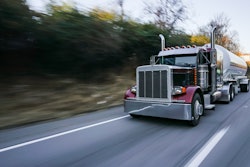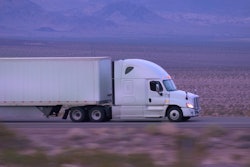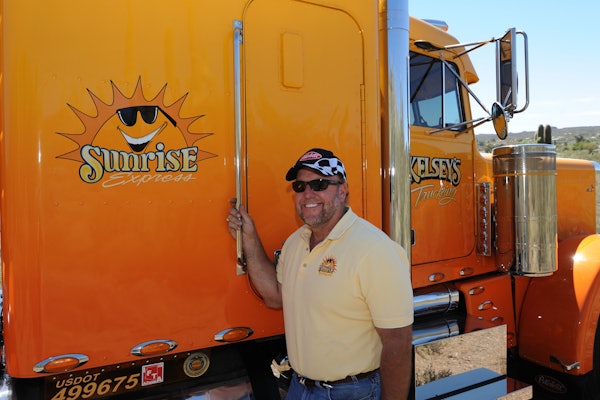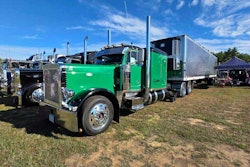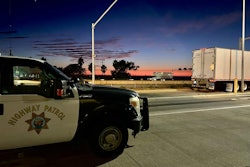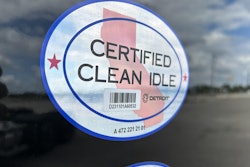Predatory towing has become an expensive insult to an already down and injured trucking market, but some state legislatures, spurred on by trucking groups who have had enough, may have found effective ways to fight back.
Louis Campion, president of the Maryland Motor Truck Association, said his organization "started to see some incredibly egregious invoices" in about 2017.
"Two companies in Maryland were charged over $140,000," said Campion, and that led to the association working with the Owner-Operator Independent Drivers Association "on two pieces of legislation to try to control costs." Overdrive has documented high fees in recent times, too, from $7,000 for a cross-town haul to armed agents booting and towing a truck while the driver was actually in the cab.
In April of 2022, Maryland passed legislation that aimed to end egregious fees for nonconsensual tows. The first set of statutes from the legislative efforts took effect in October of 2022, the second July 1 this year, requiring maximum rates, a system for flagging bad actors and mandatory choice in selecting a towing company. While it's still premature to call the legislation a total success or failure, it does illustrate how some within trucking have chalked up regulatory wins against predatory towing.

Both pieces of legislation, find the first one here, apply "exclusively to tows dispatched by Maryland State Police," said Campion. The towing world calls those police-dispatched jobs "nonconsent tows," as the state, not any consumer or property owner, orders the job. When a truck or car wrecks on a highway, it has to get moved ASAP, and authorities don't typically allow the owner of a wrecked vehicle time and space to shop around for the cheapest tow.
Tows from private property, like what happened to small fleet owner Bogdan Kruzhinskiy (charged $6,000 to move a truck and trailer just 16 miles), don't fall under the new Maryland laws. Private property owners, of course, enjoy tremendous leeway in how they can treat your vehicle once it's on their property.
But nonconsent tows resulting in exorbitant fees remained a theme in the dozen or so stories Overdrive's heard from owner-operators and drivers in recent times, and Campion said it's no coincidence.
In jurisdictions that "already had price caps, we weren't getting complaints around tows like that," said Campion. "What we did see were a lot of tows when tows were dispatched by the state police, where the driver has no role in the selection of the tower handling the vehicle and no control over costs" resulting in complaints.
[Related: Say no to 'legalized theft': Rein in exorbitant nonconsensual tow fees]
Campion had success framing the issue as a matter of personal freedom. "When I’m not being given an opportunity to select a tow company," he said, "I lose all that control. It creates an environment of being taken advantage of." Regular readers will recall owner-operator William Booth's reaction when handed a $3,000 bill for what he called a "10-foot tow" out of a ditch, in the presence of two police officers and with his truck still hooked to the wrecker. He felt he had no choice but to pay right then and there.
In the MMTA's advocacy work around the bill, Campion said they "sold it in terns of a matter of choice. No one tells you what grocery store to shop at or how much you have to pay, but with towing that’s what was happening on these police-dispatched tows."
Leveraging that, and the fact that four-wheelers were getting hit with tow bills coming in at similarly greater orders of magnitude, Campion attributed the bill's success to "a broad cross section of supporters.... This was very much a cooperative effort between ourselves and OOIDA, large carriers all the way down to single-truck owner-ops, and even beyond the trucking industry. The supporters included retailers, shippers, and insurance companies."
The only opposition, he added, was coming from towing companies.
Finally, the "extremely difficult piece of legislation" passed the Maryland legislature as "a very aggressive piece of legislation," Campion said, that went into effect in October 2022.
[Related: Towing company's catalytic converter theft ring busted: DA]
The bill required Maryland create a "complaint disciplinary process that could get [towing companies] suspended or expelled" from the system. The bill also required mandatory choice of tow companies.
The owner whose vehicle is set to be towed must be allowed to use their towing company of choice "and bypass the list," Campion said, as long as the company "could arrive within 30 minutes," or some pressing safety concern didn't force a company selection.
Finally, the legislation "established a clear prevention on holding cargo hostage," said Campion. Cargo, not the truck or trailer itself, "had to be released to the owner regardless of whether or not the bill had been paid if the cargo wasn't owned by the motor carrier."
If a tow company won't give up cargo owned by a third party, "really, it's theft," Campion emphasized.
The original legislation might have hit the tow companies where it hurt. One provision would have required tow companies to release equipment once 20% of the bill had been paid. This would have eliminated the leverage tow companies hold over their nonconsent-tow "customers."
Tow companies "were convinced every trucking company was going to dispute their bill and only pay 20%," said Campion. As a result, they agreed to maximum rates as a sort of compromise. Required filing of maximum rates was written into a second piece of legislation that took effect July 1 of this year and required a working group to come up with fair rates. The 20% deposit rule has been suspended pending the maximum rate negotiations, which must be posted on January 1 of 2024. Generally, towing companies on the state's rotation will have to file their maximum rates when they apply to be on the roster, and to make those rates available upon request.
The second bill also put an end to per-pound billing. Campion said such practices had led to some of the "more egregious" tow bills he'd seen. Sometimes, tow companies would even charge on the gross vehicle weight rating, he added, as if the trailer had been fully loaded, even when it hadn't been, as a way of "maximizing" their bills.
Campion acknowledges that the cost of towing, like trucking, has gone way up in recent years. But in times of runaway inflation, it's important to come to a consensus around what's a fair price. Tow company operator Daniel Wade of Tony's Towing in Fairhope, Alabama, told Overdrive he'd seen inflation double the price of equipment in recent years, and that tow companies often get stiffed on big recovery jobs, forcing them into "cost shifting" with higher rates to tow and/or storage rates passed on to owners with equipment on the lot.
[Related: Tow company defends 'predatory' practices]
"My thing isn't to suggest towing is an easy job," Campion said. "It just shouldn't unilaterally give you the ability to charge whatever you want without a fair, competitive market. For example, we had a tow that was $86,000 for 90 minutes of work. Is that fair? Is that a reasonable number?"
Campion said he called one tow company, a reputable one, who quoted one piece of tow equipment at $800-$900 an hour. Another tow company quoted $2,500/hour on the exact same piece of equipment. A third "quoted $10,000 an hour with a four-hour minimum. Tell me that's fair and reasonable."
The state of Colorado also has a law intended to combat predatory nonconsensual towing, which requires companies to release vehicles after 15% of the bill, or $60 (whichever is less), has been paid.
Campion cautioned that MMTA's success in Maryland owed to many people and organizations, and that state trucking organizations like his own can be a valuable resource for owner-operators and others in trucking when it comes to advocacy for better towing regulation at the state level. In efforts to organize around the issue, places like Maryland and Colorado can provide something of a blueprint for owners victimized by egregious nonconsensual tow fees.






